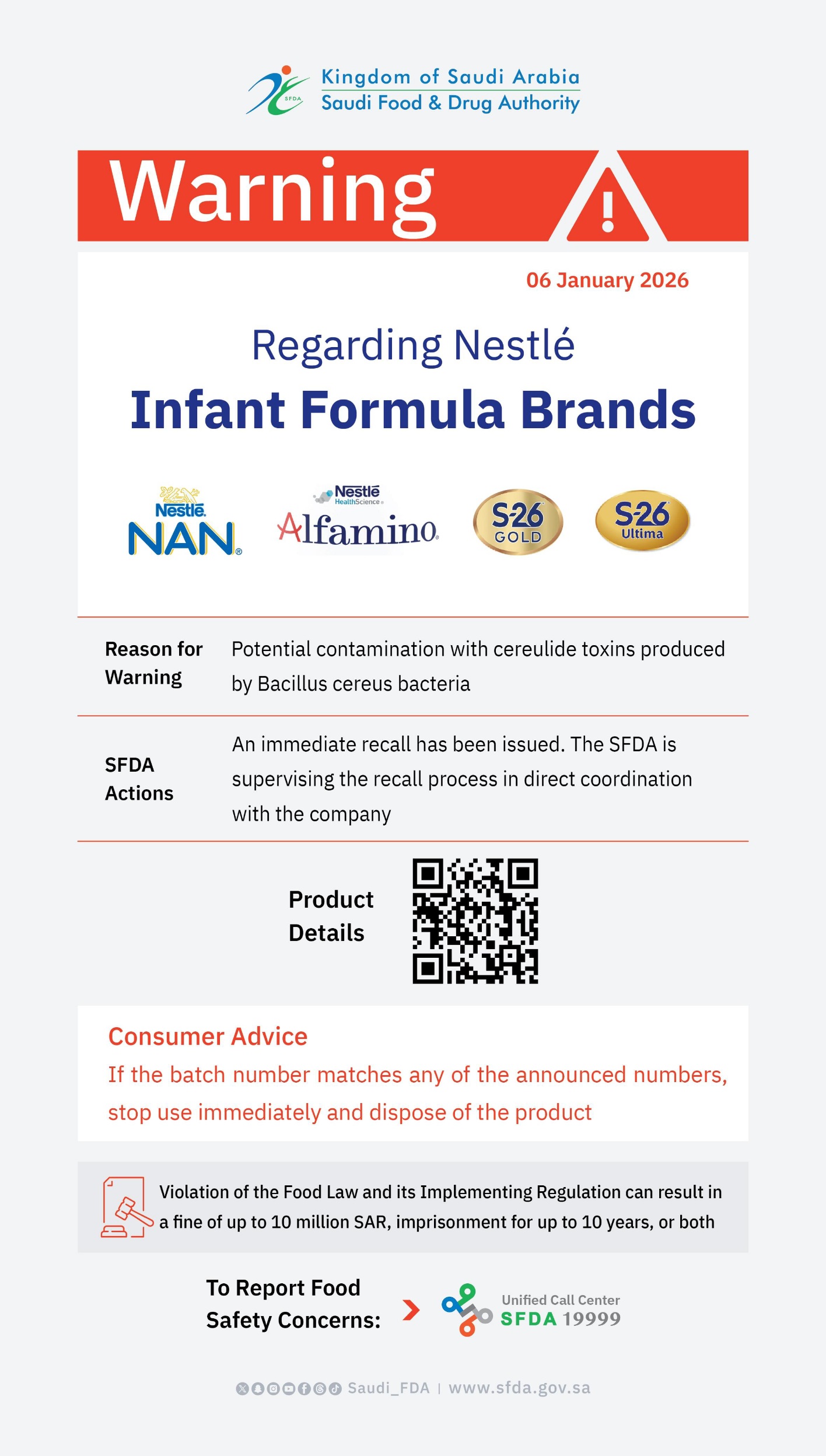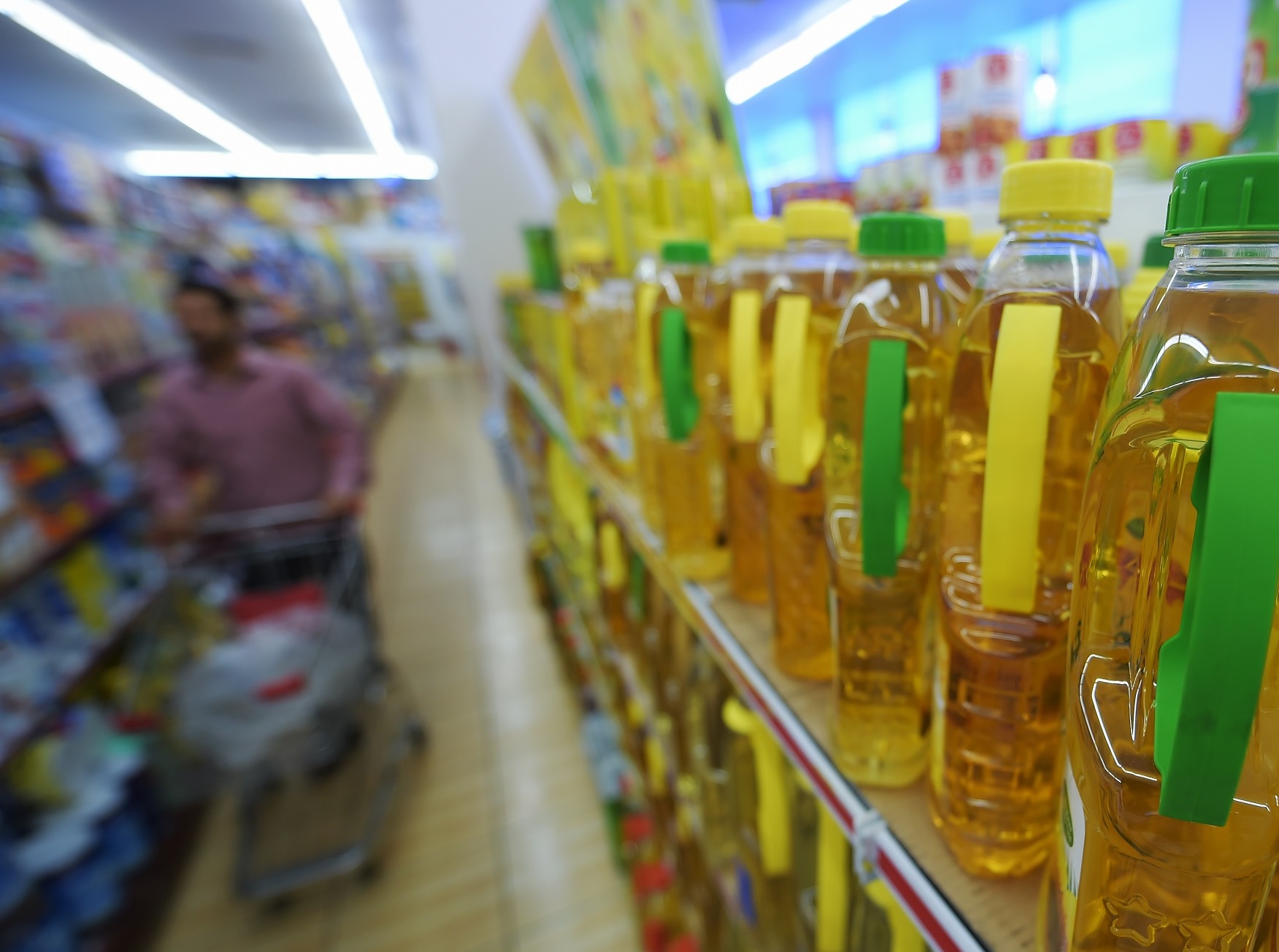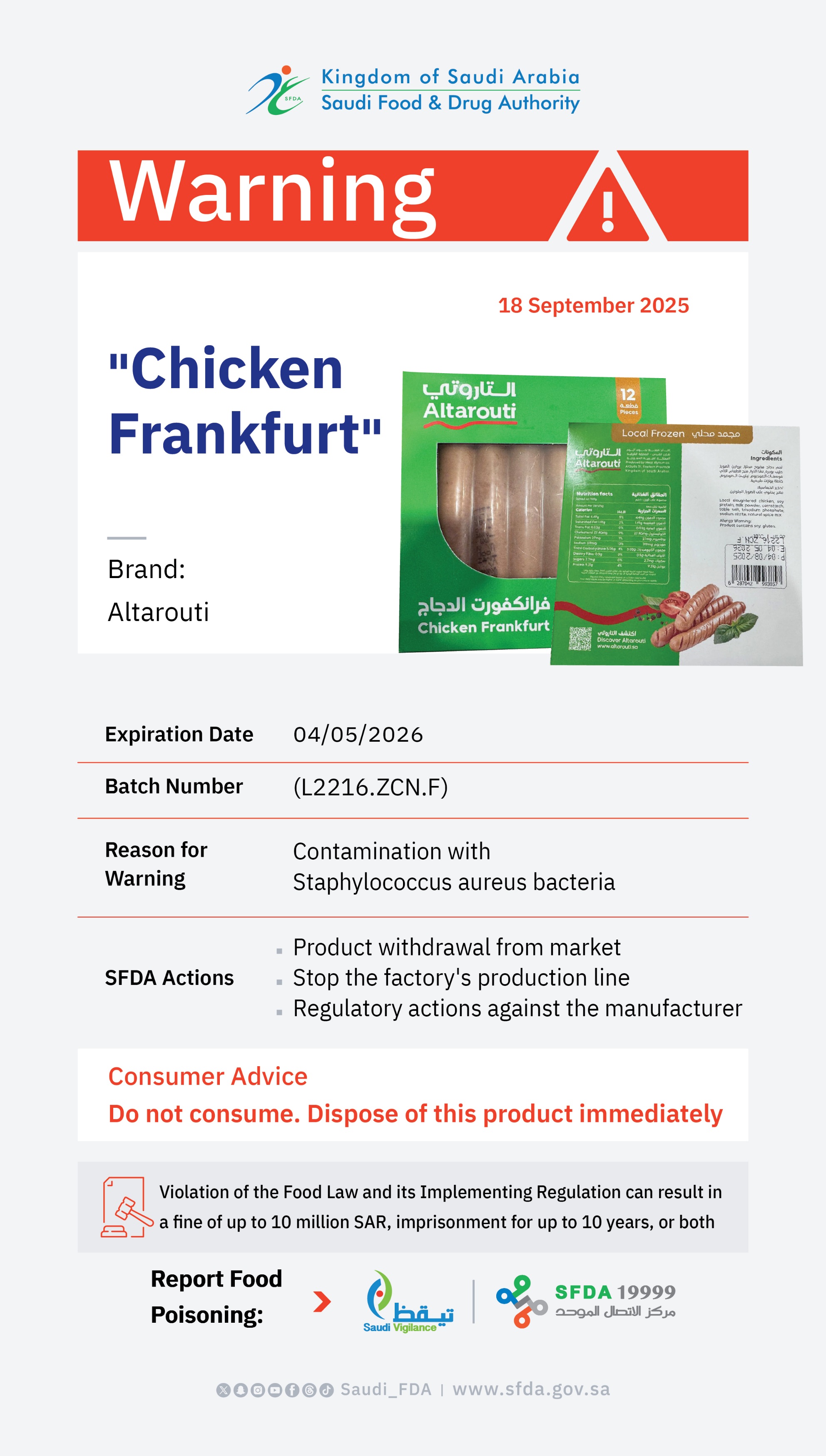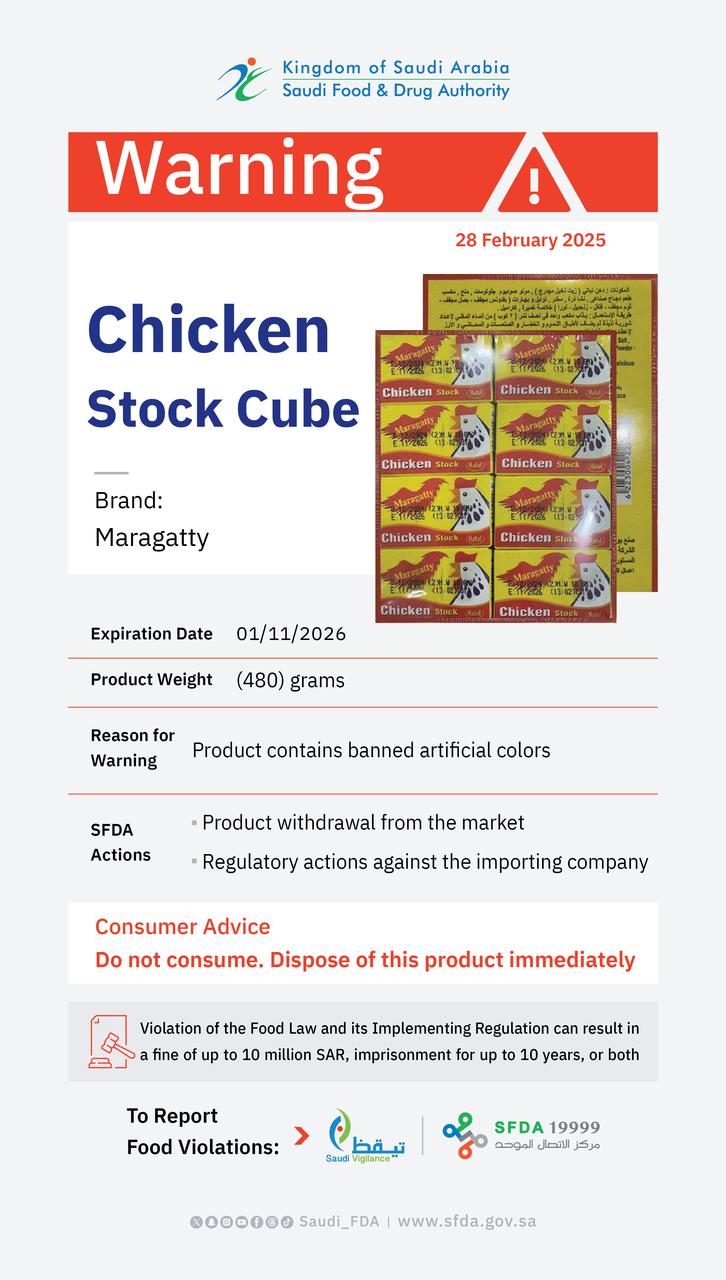
SFDA Conducted Survey about" Aromatic Hydrocarbons "in Food
2015-08-03
SFDA conducted a field survey to monitor the polycyclic aromatic hydrocarbon compounds in edible oil products which is commonly used in food preparation, such as corn oil, olive oil, and sunflower oil, as well as bottled water, in order to determine the levels of these compounds in food.
SFDA survey involved around 160 samples included, bottled water (82 samples), olive oil (56 samples), and sunflower oil (14 samples), and corn oil (8 samples)> The results of analyzed samples showed that the non-polycyclic aromatic hydrocarbon compounds in all did not exceed the maximum limits permitted by international standards.
The Polycyclic Aromatic Hydrocarbons is one of the most widespread organic compounds in the environment, and it’s made up as a result of the incomplete combustion of organic materials such as coal, wood, diesel and fat, and most important sources of these compounds in the environment are outputs of diesel and gasoline engines and Petrol refineries, e.g.: naphthalene, benzopyrene and anthracene.
Polycyclic aromatic hydrocarbon compounds can be made up in food during the preparation and manufacturing processes, they are formed during thermal treatment and during the oil extraction process, and those compounds are classified as the largest chemical group that causes cancer-and it is the most prevalent.
SFDA is continuing observation for all types of different foods to ensure that they are free from these compounds.






